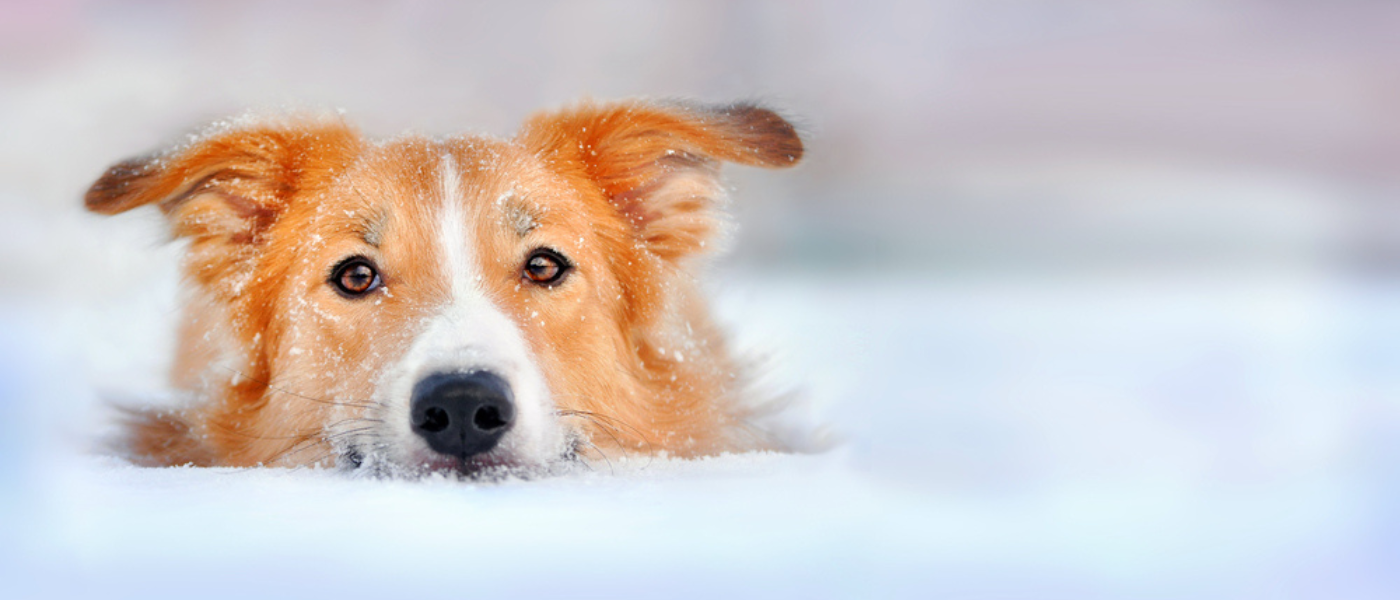Unfortunately in the Chicagoland area, temperatures drop into sub-zeros every year. Remember, just because your animal has fur, does not mean they will be safe outside for prolonged periods of time. Unless, of course, you have a cold weather breed, such as a husky. Hopefully most pet owners will understand that they need to adjust their routine to keep their furry family members happy and healthy.
Furry Friends Safety
When temperatures drop below 20º degrees, you should always keep all your animals inside. The exceptions are for short walks or when they relieve themselves. If you happen to own an “outdoor” dog, make sure to have a dry, draft-free doghouse that is big enough to allow the dog to sit and lie down, but small enough to hold in his body heat. You to make sure he is comfortable and stays warm. The floor should be raised a few inches off the ground and covered with cedar shavings or straw. You should also include a thick blanket. Additionally, the doorway should be covered with a heavy plastic or other waterproof material.
Your pets need additional calories in the winter because an animal will burn more energy staying warm in cold weather, and higher food intake will help your pet maintain their body temperature. If you are not sure how much more food they’ll need, you should ask your vet.
It is crucial that they have plenty of fresh water at all times because dehydration is common. Regularly check their water bowl to make sure it’s full in the home or clear of ice if outside.
Your pet’s skin will be somewhat dryer during the winter months and may result in itchy dandruff. Some vets recommend adding a tablespoon of vegetable oil to your pet’s food. If your dog has short-hair, you should buy him a sweater for when he goes outside. Cold breed animals have an additional layer of hair they grow specifically to keep them warm during the winter months. Also, their paw pads can get frostbite, so be sure to use a towel to wipe off paws when they come back in the house.
If there is a lot of snow on the ground, make sure to shovel a path in your yard so your dog doesn’t have to work too hard to find a place to go potty. This is especially true if they are a short dog. In very cold weather, don’t take them for long walks. Salt and chemicals used to de-ice roads will irritate an their paws. If your pup's paws come in contact with these substances when out for a walk, rinse the feet off and dry thoroughly once you get back home.

Additional Cold Weather Dangers
If you have an older dog, remember that the cold weather can cause a flare up in your pet’s arthritis—same as yours. If your pet is having trouble getting up or laying down, climbing the stairs or has started to snap or cry when picked up, call your vet.
Liquids like antifreeze and windshield wiper fluid that get spilled on your driveway may smell sweet to dogs and cats. As little as a teaspoon of some of these substances can kill your pets! Always keep an eye on them when they are outside.
If you see any animal left out in the cold, speak to its owner immediately, or notify your local police or animal welfare agency. Have a chat with your neighbor before notifying your local police or animal welfare agency. If the pet appears to be in distress, definitely notify authorities immediately. Some owners may not know about the dangers of leaving a pet out in the cold. We have to watch out for our furry friends!





